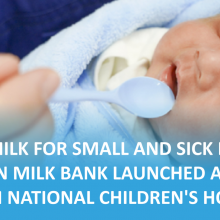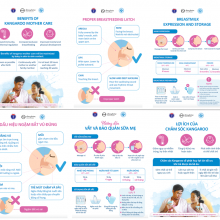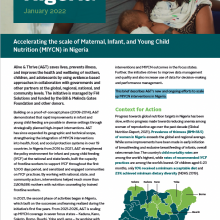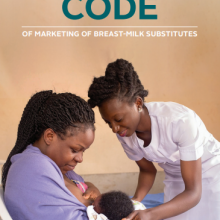Journal article
Jun 14 2022

Behavior Change Communication Implemented at Scale in Nigeria Increases the Prevalence of Key Infant and Young Child Feeding Practices (Current Developments in Nutrition, 2022)
Journal article
Jun 02 2022

Fathers’ Complementary Feeding Support Strengthens the Association Between Mothers’ Decision-Making Autonomy and Optimal Complementary Feeding in Nigeria (Current Developments in Nutrition, 2022)
Brief
Mar 22 2022

Breastmilk for Small and Sick Babies: A Human Milk Bank Launched at Viet Nam National Children's Hospital
Human Milk Bank (HMB) services are an essential component of a breastfeeding-friendly health system, ensuring pre-term, low-birth-weight, and other vulnerable infants have the protections of breastmilk when they need it most.
Poster/Graphic
Mar 10 2022

Educational posters on Kangaroo Mother Care, Proper Latching, and Breastmilk Expression and Storage
This series of three posters, developed in collaboration with the Ministry of Health of Viet Nam, provides information on kangaroo mother care, proper breastfeeding latch, and breastmilk expression and storage.
Brief
Mar 04 2022

Nigeria Country Brief
This brief describes A&T’s new and ongoing efforts to scale up MIYCN interventions in Nigeria.
Guide/Manual
Feb 09 2022

A Quick Guide: The International Code of Marketing for Breast-milk Substitutes
Updated February 2022!
This quick guide summarizes the International Code of Marketing of Breast-milk Substitutes (The Code) and relevant resolutions of the World Health Assembly that help protect breastfeeding around the globe.

